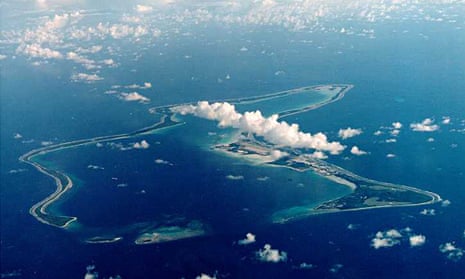Supporters of the inhabitants of a British overseas territory deported from their homeland are furious that the government has reneged on a promise that it would decide before the election on whether they could return.
Shortly before parliament disbanded, the government said it would delay confirming whether the Chagossian people could go back to the Chagos Islands, a series of atolls in the Indian Ocean. The main island, Diego Garcia, has been leased to the US military since 1966. That agreement expires next year. Novelist Philippa Gregory, secretary of the UK Chagos Support Association, branded the delay “another serious betrayal of the Chagossian community”. She added: “Chagossians have suffered in exile for years, and it is disgraceful the government has failed to deliver a small measure of justice by supporting return.” Television presenter and author Ben Fogle will hand a petition to Downing Street after the election urging the next government to let the Chagossians go back.
A recent government-commissioned report from the consultancy giant KPMG suggested that allowing the Chagossians to return was feasible. Many Chagossians support a pilot resettlement of between 50 and 150 people which could be expanded if successful. However, James Duddridge, the Foreign Office minister, said the KPMG study “found there was not a clear indication of likely demand for resettlement, and costs and liabilities to the UK taxpayer were uncertain and potentially significant”. Some estimates suggests the cost of resettlement could be as high as £60m, a figure the association describes as “disingenuous”. It said money could be found from US payments for the use of Diego Garcia, the European Development Fund and private sector investment.
Some conservationists have expressed concerns about a repatriation programme. “The Chagos marine biodiversity and condition are a valuable international asset,” said Professor Charles Sheppard, chair of the Chagos Conservation Trust. “If these are damaged, or reduced in quality, the ocean’s peoples will be the losers.” But David Snoxell, a former high commissioner to Mauritius and co-ordinator of the Chagos Islands all-party parliamentary group, called on politicians from all sides to show leadership on the resettlement issue.
“If the FCO hadn’t dragged its feet on commissioning the feasibility study a decision on resettlement would have been taken long ago, and it would very probably have been in favour,” Snoxell said.“Now we have to wait until a new government settles in and that can take up to two years. Uncertainty on cost and on the number wanting to return are not the real obstacles. Nor are the handful of conservationists who do not want to share the territory with its former inhabitants The blockage is lack of political courage and direction.”

Comments (…)
Sign in or create your Guardian account to join the discussion